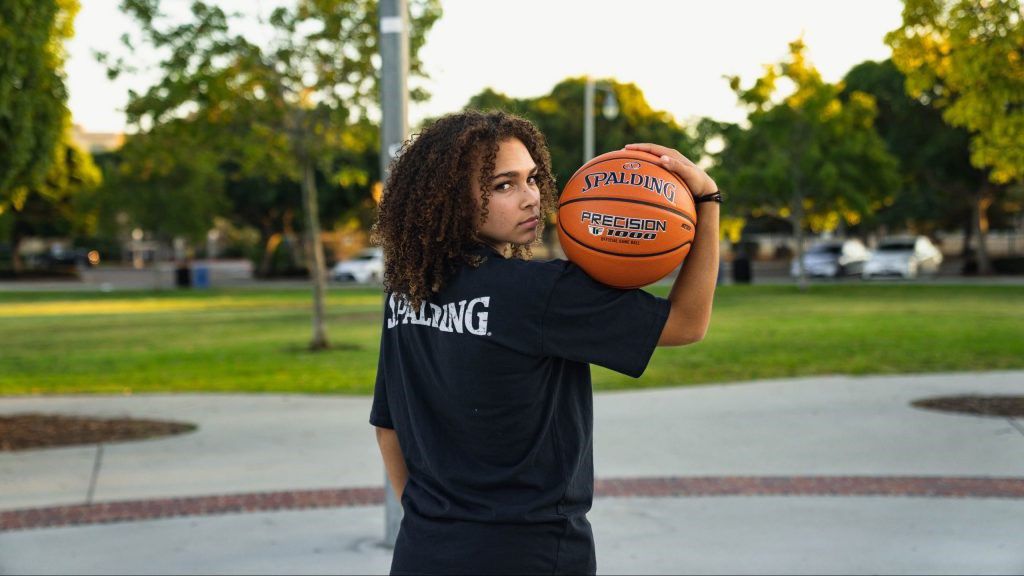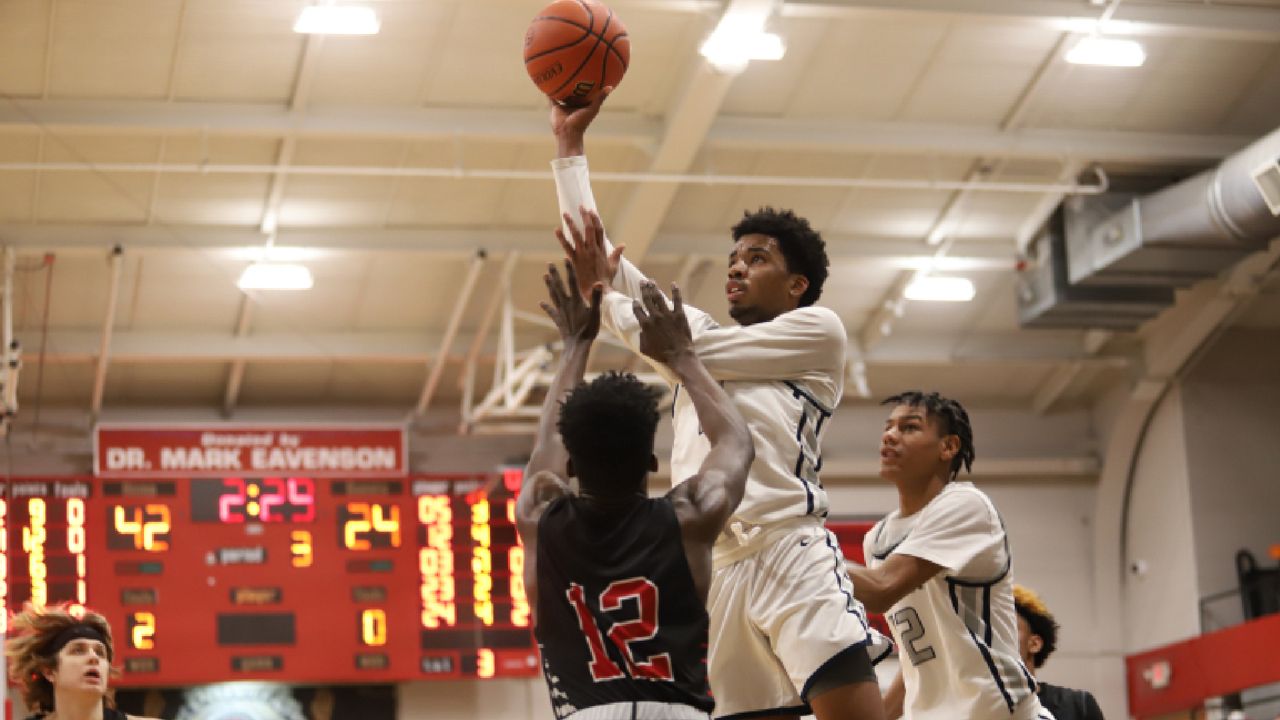UPDATE: An IHSA spokesperson confirmed after Monday's meeting that the board plans to put a proposal out for a membership vote, but that the final language "was probably still a month away" from being ready.
ORIGINAL STORY:
Luther Burden III is only one game into a college football career at the University of Missouri, and he’s already a brand name, with a potato chip deal and ads promoting a local law firm. But if Burden, who transferred from Cardinal Ritter in St. Louis to East St. Louis for his senior year, lived in almost twenty other states, he could have signed those deals before getting his high school diploma. The state where he played his senior year could be next.
The Illinois High School Association’s Board of Directors meets Monday as part of a process that could eventually allow high school athletes to profit from their name, image and likeness.
Unlike the college athletic world, where NIL reform came via state legislative action, state high school athletic sanctioning bodies wield that authority at the prep level. Monday’s meeting could set the stage for a vote of member schools on a proposal as early as November. Members of the IHSA Board who responded to Spectrum News declined to comment, citing the lack of a specific proposal and the still exploratory nature of discussions.
Sixteen state athletic associations, and the District of Columbia, now allow high school athletes to have NIL deals, largely all with the stipulation that their team’s uniform and school trademarks aren’t involved.
The school jersey is the red line that the National Federation of State High School Associations will not cross.
“I worry about the absolute breakdown of the culture and climate of a high school locker room and the purpose of the kids to play high school sports, if we start to allow a high school young person wearing their Friday night lights jersey to engage in a professional contract, now you've not only disrupted the dynamics of amateurism, but now the dynamics of the team, the school, the community,” Dr. Karissa Niehoff, NFHS Chief Executive Officer told reporters this summer and reiterated in an interview with Spectrum News Friday.
Murky in Missouri
In Missouri, NIL in the simplest terms is not allowed, but the question is still murky. Students at schools with full membership in the Missouri State High School Activities Association or MSHSAA can accept gifts and awards for their participation, like trophies or rings awarded by schools, as long as they’re valued at less than $250. Students at full member schools can’t receive NIL compensation. Student-athletes at “affiliate” member schools, which do not compete for district or state championships, can agree to NIL deals and remain eligible as long as those schools don’t compete against full-member schools.
“If they don’t change the rule they’ll be an outlier pretty soon. Just like with college athletes, there’s no reason to prevent high school students from monetizing their NILs just because they are also athletes,” said Mit Winter, a Kansas City lawyer who specializes in NIL and has informally advised parents of high school student-athletes on the subject.
Winter points to Jada Williams, who was a standout point guard at Blue Springs High School before moving to California, the first state to allow high school student-athletes to sign NIL deals.

Jada Williams moved from Blue Springs, Mo. to the San Diego area in part because the state of California allowed high school student athletes to sign Name, Image and Likeness deals. (Photo Courtesy: Spalding)
Williams told Spectrum News earlier this year that her social media following exploded years ago after the rapper Drake liked one of her basketball videos and it went viral. But she couldn’t capitalize on it.
"I was just hitting a wall, like NCAA rules were like you can't get paid, so I was just hitting a wall," Williams said. "Because I wanted to play college basketball, so I was like I'm not touching no money."
"A lot of people thought I was making money back then, and I wasn't, because I couldn't," she said.
What a difference a few years can make. Now a senior at La Jolla Country Day School in Southern California, Williams, who first committed to play college basketball at UCLA before flipping to Arizona, has endorsement deals with Spalding, Dick’s Sporting Goods, Move Insoles and Gymshark, among others.
“Jada got a lot of backlash for moving from Missouri to California,”Williams’ mother Jill McIntyre told Sports Illustrated earlier this year. “You know, people back home thinking, ‘Oh, she’s Hollywood now; she doesn’t care about Missouri.’ I don’t think any of them really understand the depth of even why she left. But literally it was to make a stance to hopefully allow all these girls and boys across the United States to be able to use their name and likeness, because obviously by her doing it in California, she knows that’s going to open doors across the world for other girls behind her.”
Iowa, Nebraska and Kansas are three Missouri border states that allow High School NIL arrangements. Illinois could be the fourth.
Peter Schoenthal, attorney and CEO of Athliance, a NIL management platform, doesn’t have any high school clients yet but does advise athletes at that level preparing for college NIL deals. He said he isn’t surprised to see high school deals, but is surprised the evolution took this long to happen. And it is an evolution, with two of the biggest states when it comes to high school sports hotbeds--Texas and Florida--both still closed for high school NIL business.
“I think one of the great disservices we've done to this space is calling it name, image and likeness. Really what we've done is opened up the gates for anyone, including student-athletes to use their right to publicity to market themselves, to be social influencers, to make money off of their YouTube and things of that nature,” he said. “I think it was always wild that a high school student athlete couldn't have a YouTube cooking channel and profit off of it like anyone else in the country, solely because they played sports and so based on that, this is the logical extension and I'm happy we're finally here.”
Borrowing the YouTube analogy, Niehoff, the NFHS CEO, supports the ability of student-athletes to profit from an off-court pursuit, but that professional contracts based on an athletic identity are problematic.
One year into the NIL world at the college level, there are concerns that it has become a recruiting tool, an inducement, instead of a way for an athlete to profit off of his or her likeness.
But followers of high school sports in St. Louis and elsewhere have for years pointed to allegations and whispers of schools poaching talent from other schools, long before the idea that there could be a financial reward for doing it.
“The days of staying at your hometown high school and trying to win one for the community is long gone, you've seen it across the country,” Schoenthal said, adding that this would become just another factor to consider.
Niehoff sees the inducement concerns at the college level, how NIL has helped contribute to an explosion of transfers. While she and does worry about that impact "falling down" into the high school ranks, she acknowledged that it would amount to a far smaller percentage of athletes. The NFHS is in the final stages of developing an NIL education program, she said. But there will be more learning to be done, learning by examples both good and bad.
Edwardsville High School Athletic Director Alex Fox isn’t a fan of what could be coming to Illinois. “It’s the trickle down effect. Everything eventually finds its way to high school. I have my own opinions and have not seen any proposals, but it's going to do more damage than good if it passes,” he said.



